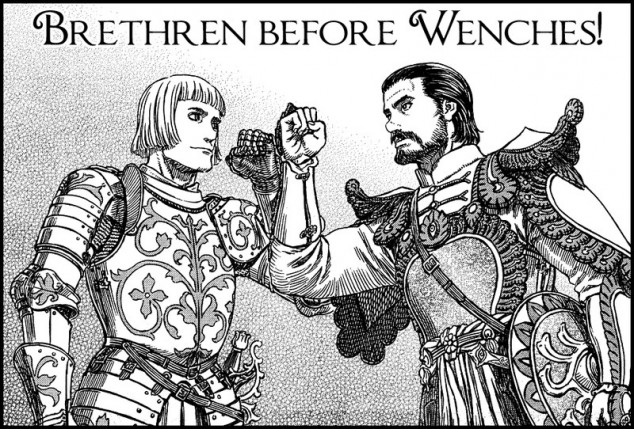
Alright, I'm at a loss as to what else I could write, but in both of the plays I'm currently reading, Love's Labour's Lost and As You Like It, this has been totally bugging me!
Fernando and his pals are all ready to go woman-free, with the total "bros before hos" mentality . . . and BAM! In walks pretty girls and suddenly they're in love.

Meanwhile in the other play, Rosalind and Orlando only meet once before deciding that they are in love, and get all mopey about it.
Shakespeare darling. . .you know I love you but that's not how it does or should work.
In some ways, you really can't blame him though. Read any old fairy tale, even 50 years old or more, and how does it go? Man (usually prince) sees woman (usually princess). They both think the other one is mega-hot, and suddenly they are in love.Then they get married like what. . .a week later? I remember once looking through all of the fairy tales in my two ancient books of them, one Grimm's and the other Andersen's. . .and there was not a single tale that did not follow that pattern.
Hence the reference to Disney. Instead of railing on him myself, though, I found a related article that I think better sums up what I'm trying to say here.
http://community.sparknotes.com/2011/09/29/why-disney-princesses-are-the-worst-role-models-ever
 P.S. I completely agree with the remark about the redone Rapunzel (Tangled). Heck. I pretty much agree with all of it.
P.S. I completely agree with the remark about the redone Rapunzel (Tangled). Heck. I pretty much agree with all of it.